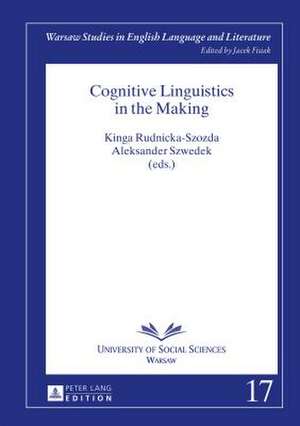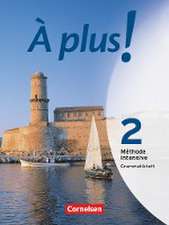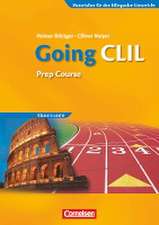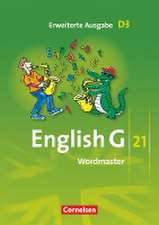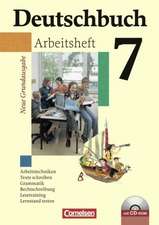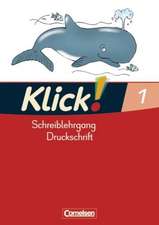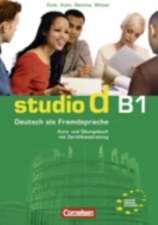Cognitive Linguistics in the Making: Warsaw Studies in English Language and Literature, cartea 17
Editat de Kinga Rudnicka-Szozda, Aleksander Szwedeken Limba Engleză Hardback – 18 mar 2015
Preț: 616.71 lei
Preț vechi: 800.92 lei
-23% Nou
Puncte Express: 925
Preț estimativ în valută:
118.02€ • 128.15$ • 99.14£
118.02€ • 128.15$ • 99.14£
Carte tipărită la comandă
Livrare economică 22 aprilie-06 mai
Preluare comenzi: 021 569.72.76
Specificații
ISBN-13: 9783631652008
ISBN-10: 3631652003
Pagini: 372
Dimensiuni: 150 x 211 x 28 mm
Greutate: 0.56 kg
Editura: Peter Lang Gmbh, Internationaler Verlag Der W
Seria Warsaw Studies in English Language and Literature
ISBN-10: 3631652003
Pagini: 372
Dimensiuni: 150 x 211 x 28 mm
Greutate: 0.56 kg
Editura: Peter Lang Gmbh, Internationaler Verlag Der W
Seria Warsaw Studies in English Language and Literature
Notă biografică
Aleksander Szwedek is Professor of Linguistics at the University of Social Sciences in Warsaw. His current interest is the theory of metaphor: the importance of touch and object in metaphorization. Kinga Rudnicka-Szozda is Assistant Professor of Linguistics at the University of Social Sciences in Warsaw. She is currently interested in cognitive pragmatics and cross-cultural communication.
Cuprins
Contents: Boguslaw Bierwiaczonek: On constructivization - a few remarks on the role of metonymy in grammar - Beata Brzozowska-Zburzynska: A concept of container in temporal phrases - a comparative study - Marta Falkowska: Subjectivity and objectivity in language as seen by Louis Hjelmslev and Ronald W. Langacker - Blazej Garczynski: A cognitive analysis of spatial particles in Danish ENHEDSFORBINDELSER and corresponding compounds - Agnieszka Gicala: A cognitive analysis of Lewis Carroll's Alice's Adventures in Wonderland and its Polish translations: linguistic worldview in translation criticism - Adam Glaz: When -ities collide. Virtuality, actuality, reality - Anna Kedra-Kardela: Iconicity and the literary text: A cognitive analysis - Krzysztof Kosecki: On multiple metonymic mappings in signed languages - Marcin Kuczok: The metonymic mappings within the event schema in noun-to-verb back-formations - Anna Kuncy-Zajac: The concepts of sleep and death in the Italian language and the unidirectionality of metaphor - Marek Kuzniak / Jacek Wozny: Linguistic Force Dynamics and physics - Katarzyna Kwapisz-Osadnik: The notion of prototype in linguistics and didactics, revisited - Aleksandra Majdzinska: Using cognitive tools in analysing variant construals: the remakes of «The Scream» by Edvard Munch - Józef Marcinkiewicz: The metaphor in feedback transfer in L2 acquisition (with some examples of the interaction between the Polish and Lithuanian languages) - Jolanta Mazurkiewicz-Sokolowska: The process of language acquisition by a child with profound hearing loss and co-existing defects as a contribution to the proposal on the need for a comprehensive approach to the phenomenon of human language capability - Maciej Paprocki: Infecting the body politic? Modern and post-modern (ab)use of Immigrants Are Invading Pathogens metaphor in American socio-political discourse - Judit Pethő-Szirmai: A cognitive investigation of the category of sin - Malgorzata Plominska: Linguistic and cultural image of the notion of 'death' in Polish and German - Joanna Podhorodecka: 'Do we always like doing the things that we like to do?' Non-finite complementation of the verb Like - Beata Rycielska: What do the Russian prefixes вы-, из- and the preposition из have in common and what makes them different? - Olga Sokolowska: Metonymy and metaphor as merging categories. A study of linguistic expressions referring to the face - Elzbieta Tabakowska: Iconicity and (cognitive) grammar: where shall the twain meet? - Jacek Tadeusz Walinski: Motion as a modulator of spatiotemporal relations in prepositional expressions of distance - Ewa Wychorska: Abstract vs concrete: contrastive analysis of the conceptualization of stillness and motion in Polish and English - Magdalena Zyga: Conceptual-linguistic creativity in poetic texts as a potential source of translation problems.
